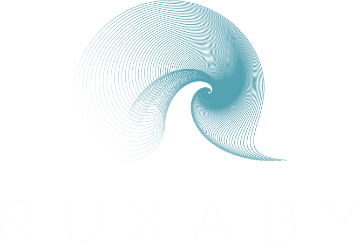Frequently Asked Questions
import { Card, CardGrid } from ‘@astrojs/starlight/components’; import { Details } from ‘@astrojs/starlight/components’;
Ruxaby is a decentralized marketplace on Algorand where buyers and sellers transact using smart-contract escrow. Find quick answers about accounts, payments, orders, disputes, and security below.
General
Section titled “General”What is Ruxaby?
Ruxaby is a decentralized marketplace on Algorand where buyers and sellers transact using smart‑contract escrow. You can choose platform‑arbitrated (Trustful) or mutual‑collateral P2P flows.Which currencies can I use?
You can pay with ALGO or USDC on Algorand. Support for additional ASAs may be added via governance.Is Ruxaby available in my country?
Yes. Ruxaby is permissionless and borderless—anyone with an Algorand wallet and internet connection can participate.Accounts & Privacy
Section titled “Accounts & Privacy”Do I need an email or phone number to sign up?
No. Your public wallet address is your identifier. You authenticate by signing a message, not by creating a password.What personal data do you collect?
Only the minimum required for the transaction. Shipping details are shared privately between buyer and seller. Names, emails, and phone numbers are optional.Can I keep my identity private?
Yes. Ruxaby supports pseudonymous use. On‑chain activity is public, but you control what personal info you share.Payments & Assets
Section titled “Payments & Assets”How are funds held during a transaction?
Funds are locked in a non‑custodial escrow smart contract until the order resolves per the selected model and rules.Who pays network fees?
Each transacting party pays its own Algorand network fees, which are typically a fraction of a cent.When do sellers get paid?
In Trustful, upon buyer confirmation or auto‑confirm after the deadline. In P2P, after buyer confirmation; both deposits are returned simultaneously.Orders & Escrow
Section titled “Orders & Escrow”What is the Trustful model?
The platform can arbitrate disputes within strict, pre‑coded outcomes. It mirrors familiar Web2 flows but remains non‑custodial.What is the P2P model?
Both buyer and seller post deposits (mutual collateral). If there is a dispute, funds stay frozen until both agree or rules time out. This deters fraud by either side.What are auto‑confirm and ship‑by timers?
Listings define dispatch deadlines and an auto‑confirm window. These timers protect both parties and keep orders moving.Disputes
Section titled “Disputes”How are disputes handled in Trustful?
Either party can report before auto‑confirm. Moderators review evidence such as tracking and order chat and apply outcomes encoded in the contract (e.g., partial or full refund).How are disputes handled in P2P?
There is no third‑party arbitrator by default. Funds remain frozen until both parties reach agreement. Misbehavior is discouraged because deposits are at risk.Should I use P2P for digital goods?
Yes. For redeemables and hard‑to‑verify items, P2P mutual collateral is recommended because third parties cannot safely verify secrets without using them.Security
Section titled “Security”Is my money safe?
Ruxaby is non‑custodial. Funds are controlled by Algorand smart contracts; the platform cannot move funds arbitrarily.How do I log in securely?
You sign with your wallet to prove address ownership. There are no passwords to leak or reuse, and no card data stored on platform servers.Performance & Fees
Section titled “Performance & Fees”How fast are transactions?
Algorand finalizes transactions in under 3 seconds. There are no forks or re‑orgs, which results in a predictable UX.What are the fees?
Network fees are negligible. Platform fees are applied at settlement and are designed to be lower than typical Web2 marketplace fees.Reputation & Reviews
Section titled “Reputation & Reviews”How do reviews work?
Reviews are tied to on‑chain orders or signed attestations, making manipulation harder. Buyers can inspect a reviewer's wallet history for added context.Can reviews be faked?
It's significantly harder than in Web2. On‑chain signals like wallet age and transaction history help flag suspicious activity.P2P Model
Section titled “P2P Model”How are deposit amounts set?
Sellers configure deposits per listing. We recommend proportional deposits based on category risk, with presets to simplify setup.What if one party is unresponsive?
Auto‑confirm and timeout rules protect the counterparty. In P2P, prolonged stalemates keep deposits locked, creating a strong incentive to resolve.About Algorand
Section titled “About Algorand”Why Algorand?
Algorand offers sub‑3s finality, negligible fees, reliability, and a robust smart‑contract environment—well‑suited for commerce at scale.Need More Help?
Section titled “Need More Help?”Can’t find the answer you’re looking for? Visit our comprehensive help center for additional resources, tutorials, and support.
